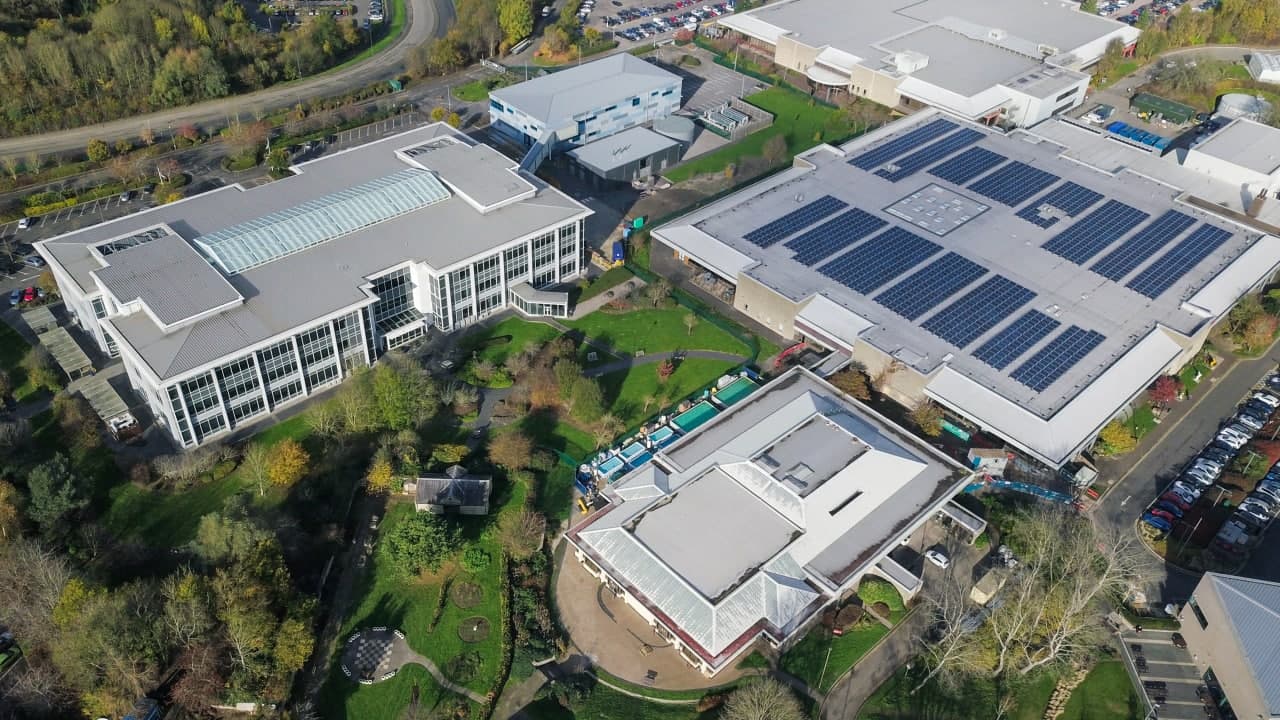Overview
This is an innovative programme with an integrated delivery from end‐to‐end covering a wide range of financial technology topics, whilst providing a focus on application and the regulation required in this area. The programme focuses on practical skills in core areas such as data & financial analytics, e-Finance, financial services and cybersecurity while also offering applied skills in contemporary topics such as data analytics, and financial applications. Its aim is to create a mastery of core financial technologies and financial systems while also enhancing the practical technical skills of the learners.
Financial Technology can incorporate many different areas and is an evolving area. Through the work of the Programme Team and in conjunction with the industry experts, Financial Technology has been defined as a combination of financial systems, data management and technology including areas such as Project Management Risk Management, Cyber Security, Law & Regulation, Information Technology, Data Analytics and Financial Services. The programme aims and learning outcomes have been designed to reflect these specific areas. The programme incorporates Personal & Professional Development (PPD) within modules to enhance learners’ employability and to equip them to integrate seamlessly into an organisation by developing skills such as leadership, self‐management and teamwork that are essential in the Financial Technology sector, which is a rapidly changing industry which requires motivated and flexible employees. The Applied Project module requires students to identify a problem or issue in the Financial Technology domain and apply problem-solving skills to research and analyse the issue and develop real-world solutions, and critically reflect on this research process.
The specific programme aims are as follows:
Develop learner’s criticality in order to analyse industry trends in Fintech
Provide learners with a platform to develop the requisite knowledge and technical skills in current and developing financial technologies
Prepare learners to work effectively and collaboratively in the execution of common goals
Provide learners with systematic knowledge of the management of Financial Technology in organisational and regulatory contexts
Facilitate the development by the learner of applied skills that are directly complementary and relevant to the workplace
Identify and develop autonomous learning skills for the learner
Enable the learner to identify, develop and apply analytical, creative, problem solving and research skills
Provide the learner with a comprehensive platform for career development, innovation and further study.
Teaching and Assessment
DBS is committed to providing a flexible, active, peer-led, experiential and reflective learning environment for learners. As a result, throughout this programme, learners will experience a varied range of teaching and learning strategies, which have been selectively chosen and based on module content and suitability for assessment. While modules will be delivered through a mix of workshops, practical sessions, tutorials and lectures, teaching and learning will focus on the learner applying problem-solving skills and undertaking critical reflection and critique of case studies. The material will be presented during lectures and workshops with supporting material available via Moodle, DBS’s virtual learning environment. Learning, teaching and assessment for this programme, therefore, encourages learners to develop critical thinking, creative problem solving and analytical and evaluative skills relating to real-world scenarios.
For international students
The minimum entry requirements for the Higher Diploma in Science in FinTech are a Level 8 honours degree in a cognate or non-cognate area. Applicants who do not have a Level 8 qualification and who have at least 1-2 years of work experience may also be considered through the college's normal RPL procedures.
Prospective students alternatively may have a Level 7 ordinary bachelor's degree in a cognate area (computer science, technology, networking, information systems, engineering, general science, mathematics, statistics, data science) and wish to specialise in the field of Financial Technology with a view to entering the industry or those who are working in Financial Technology already and who require a qualification in the area in order to progress professionally.
In addition, for applicants whose first language is not English and who have not undertaken their undergraduate degree through English the following is required:
The minimum requirement for a non-native English speaker is greater or equal to B2+ in the Common European Framework of Reference for Languages for admission Non‐EU applicants, resident outside Ireland/EU, must apply directly to the International Admissions Office at DBS.
1 Year - Full time
![Fee]()
Fee
€10,050.00 (US$ 10,771) per yearAccommodation- Dublin Prices start at 270-450 per week and include utilities and WIFI
![Start Date]()
Start Date
![Address]()
Address
Dublin Business School, 13/14 Aungier Street, Dublin 2 , Dublin 2, Dublin, D02 WC04, Leinster, Republic of Ireland
1 Year - Full time
![Fee]()
Fee
€10,050.00 (US$ 10,771) per yearAccommodation- Dublin Prices start at 270-450 per week and include utilities and WIFI
![Start Date]()
Start Date
![Address]()
Address
Dublin Business School, 13/14 Aungier Street, Dublin 2 , Dublin 2, Dublin, D02 WC04, Leinster, Republic of Ireland

Description
Requierments
Study options






 Stay in touch with us
Stay in touch with us





